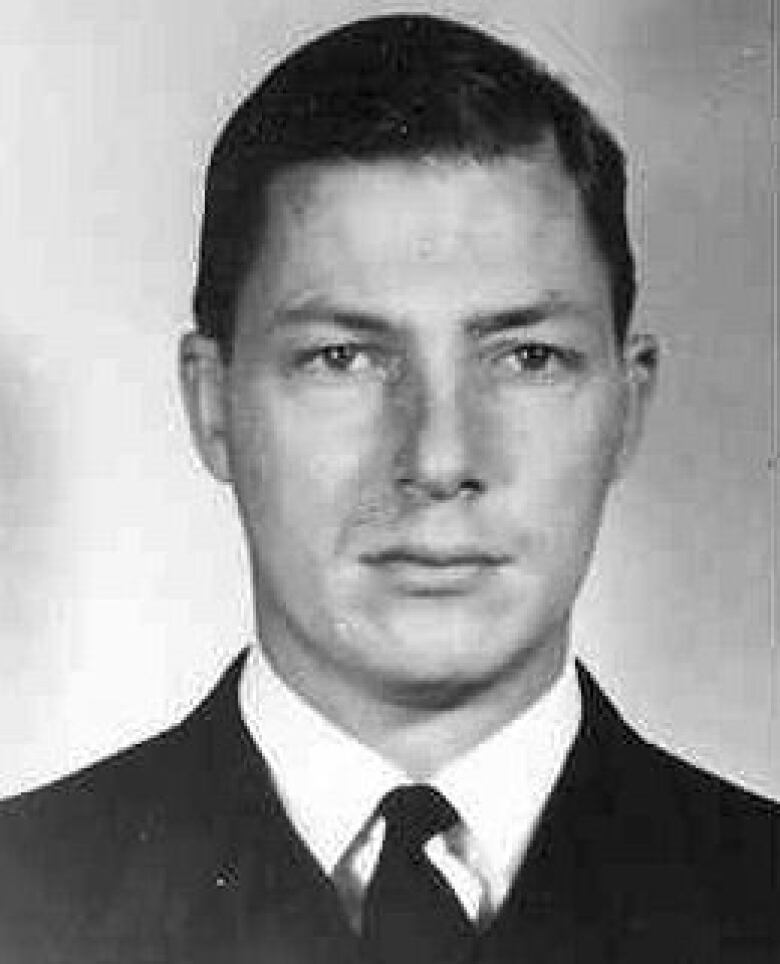Canadian pilot's family finds closure after Hurricane Irma washes up debris 59 years later

It has been nearly six decades since Royal Canadian Navy Lt. William Thomas Barry Troy vanished with barely a trace off the coast of Florida.
The 29-year-old Chatham, N.B., pilot, known to loved ones as Barry, took off from an aircraft carrier off the coast of Florida in a F2H-3 Banshee jet on Feb. 25, 1958, bound for the naval air station in Mayport, Fla.
But Lt. Troy never arrived at his destination. He was presumed killed in a plane crash, but neither his body nor the plane wreckage were ever found — just his pilot's helmet and a wheel from the fighter jet.
"We really didn't get a lot of information, so we were kind of in the dark all these years," his brother Dick Troy, 80, told As It Happens host Carol Off. "There was sort of never any finality to this story."
- AS IT HAPPENS: Baby's coffin found empty decades later
- AS IT HAPPENS: Danish boy finds Nazi plane on family farm
- AS IT HAPPENS: Irma unearths ancient canoe in Florida
Troy was 21 when his brother was first reported missing. His family held out hope for the first few weeks, he said, but "worried that the worst was yet to come."

Now, 59 years later, Troy finally has some measure of closure about his brother's death.
Last month, on the heels of Hurricanes Irma, park ranger Zack Johnson came across a pile of debris washed ashore on Florida's Hanna Park.
The findings include parachute rigging, some metal pieces and a parachute harness with the words "Lt. (P) Troy" inscribed on it.
"We happened to find this ball of stuff on the high water line. I know I drove past it at least five times. Other rangers say they drove past it, too," Johnson told News4Jax.com.
"I knew I had found something special when I found the lieutenant's stencil on the back of the float coat."
He suspects it had been buried for decades under the sand dunes and brought to the surface during the latest hurricane season.
Troy learned the news when a television reporter from the Channel 4 news called him for comment.
"It was surreal to say the least. You could have knocked me over with a feather," he said. "It was stunning. I got more information from him than we ever would have got from the navy."
Among that information was that his brother's parachute was never opened.
"The fact that the chute was never deployed means it was very quick," Troy said.

The debris is now in the possession of the Jacksonville Sheriff's Office, but Troy hopes the officers will return the parachute so he can pass it onto his daughter and grandchildren as a memento.
The family never had a body to bury and his brother's name is inscribed on his parents' headstone, he said.
Troy would also like to see the place where his brother died.
"I would like to go to that beach, though, and maybe stand there," he said. "You know, for myself."
